Bellinzona institutes strengthen ties with China in cancer research
Institutional Communication Service
On the 75th anniversary of Switzerland's official recognition of the People's Republic of China, the Institute of Oncology Research (IOR, affiliated with USI and member of Bios⁺) and the Oncology Institute of Southern Switzerland (IOSI-EOC) represented Swiss scientific excellence at a high-level event in Beijing dedicated to collaboration in cancer research.
In 1950, Switzerland was the first Western nation to officially recognise the People's Republic of China, which had been founded the previous year by Mao Zedong. This historic gesture remains a milestone in Chinese-Swiss relations.
To mark the 75th anniversary of this diplomatic achievement, a series of commemorative events was organised across China, particularly by Swissnex, the Swiss agency that promotes international collaboration in science and the arts. The celebrations concluded on Monday, 17 November, with a high-level meeting at the Swiss Embassy in Beijing, focused on enhancing cooperation between Switzerland and China in oncology research.
Switzerland was represented at the event by the Institute of Oncology Research (IOR) and the Oncology Institute of Southern Switzerland (IOSI-EOC). The encounter was attended by several researchers and professors from all over China, many of whom had already collaborated with the institutes in Bellinzona and are still participating in various joint projects with the IOR, which, together with the Institute for Research in Biomedicine (IRB, affiliated with USI), forms the Bellinzona Institutes of Science (Bios⁺).
Over the past years, collaboration between Bellinzona and China has intensified significantly. Chinese students and researchers now constitute the third largest community within the Bellinzona Institutes, after the Swiss and Italian communities, testimony to the vitality of this exchange. For this reason, among others, the IOR receives dedicated funding from the State Secretariat for Education, Research and Innovation (SERI) to further strengthen scientific collaboration with China.
A key pillar of this partnership is the International Extranodal Lymphoma Study Group (IELSG), chaired by Prof. Franco Cavalli with Prof. Emanuele Zucca as Scientific Director. During the meeting in Beijing, Prof. Zucca illustrated how this collaboration has led to Chinese participation in IELSG international clinical trials and paved the way for the implementation of IELSG-coordinated studies in China. Prof. Cavalli presented an overview of global efforts in cancer research, including those carried out in Ticino. In addition, Prof. Andrea Alimonti, IOR Director, presented ongoing collaborations with leading Chinese research centres focused on prostate cancer, an area in which several Chinese students and researchers are currently active in his laboratory.
The event concluded with a roundtable discussion examining how the long-standing collaboration between Bellinzona and China could serve as a model for future scientific partnerships, particularly in oncology. China is making significant investments in this area, especially in integrating artificial intelligence into cancer research. During the discussion, Prof. Bo Xu, Director of the Chongqing Cancer Centre, highlighted national advancements in AI-driven oncology. Additionally, a collaboration agreement was finalised between the Chongqing Cancer Centre and the IOR, focusing on the applications of artificial intelligence in cancer research.




